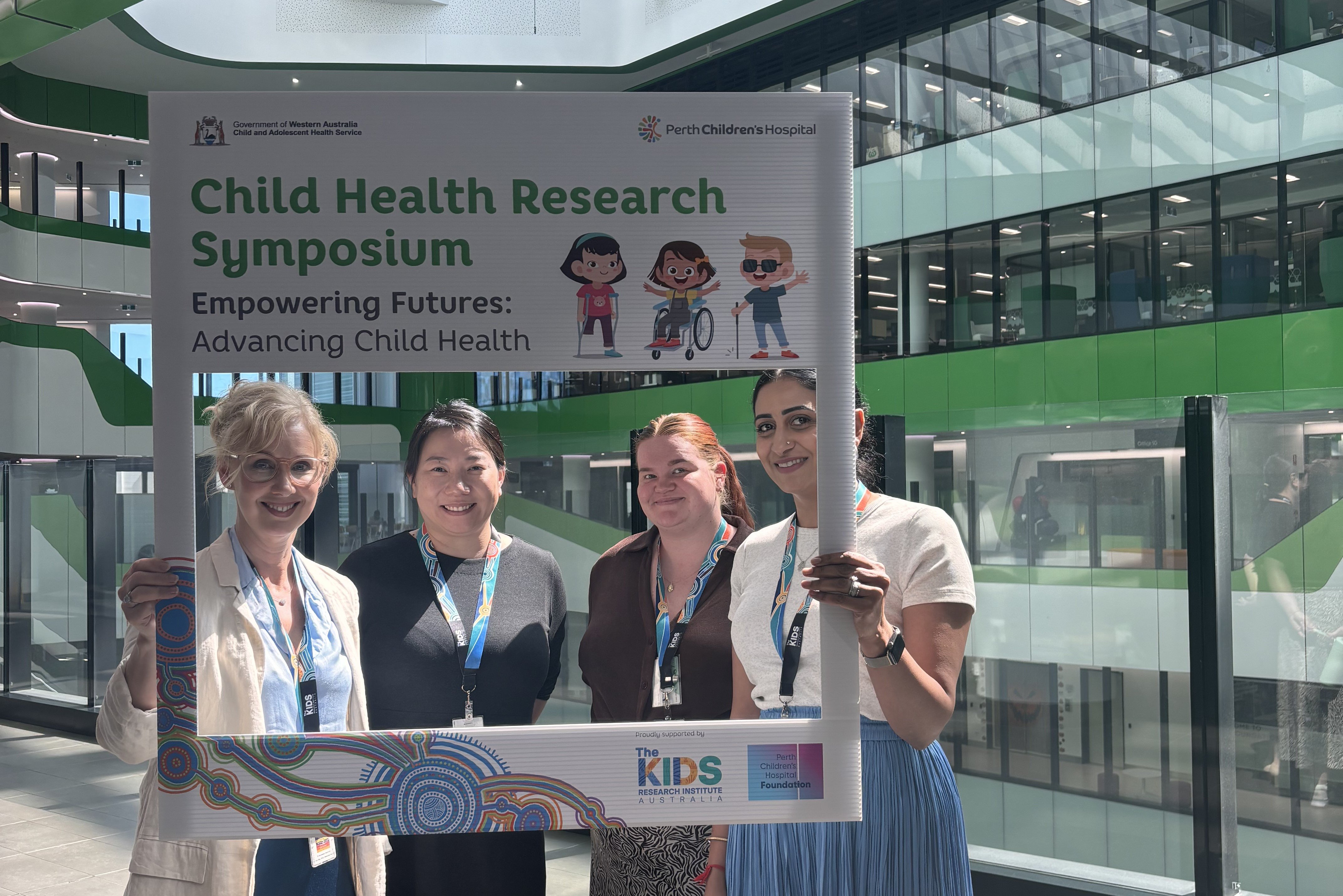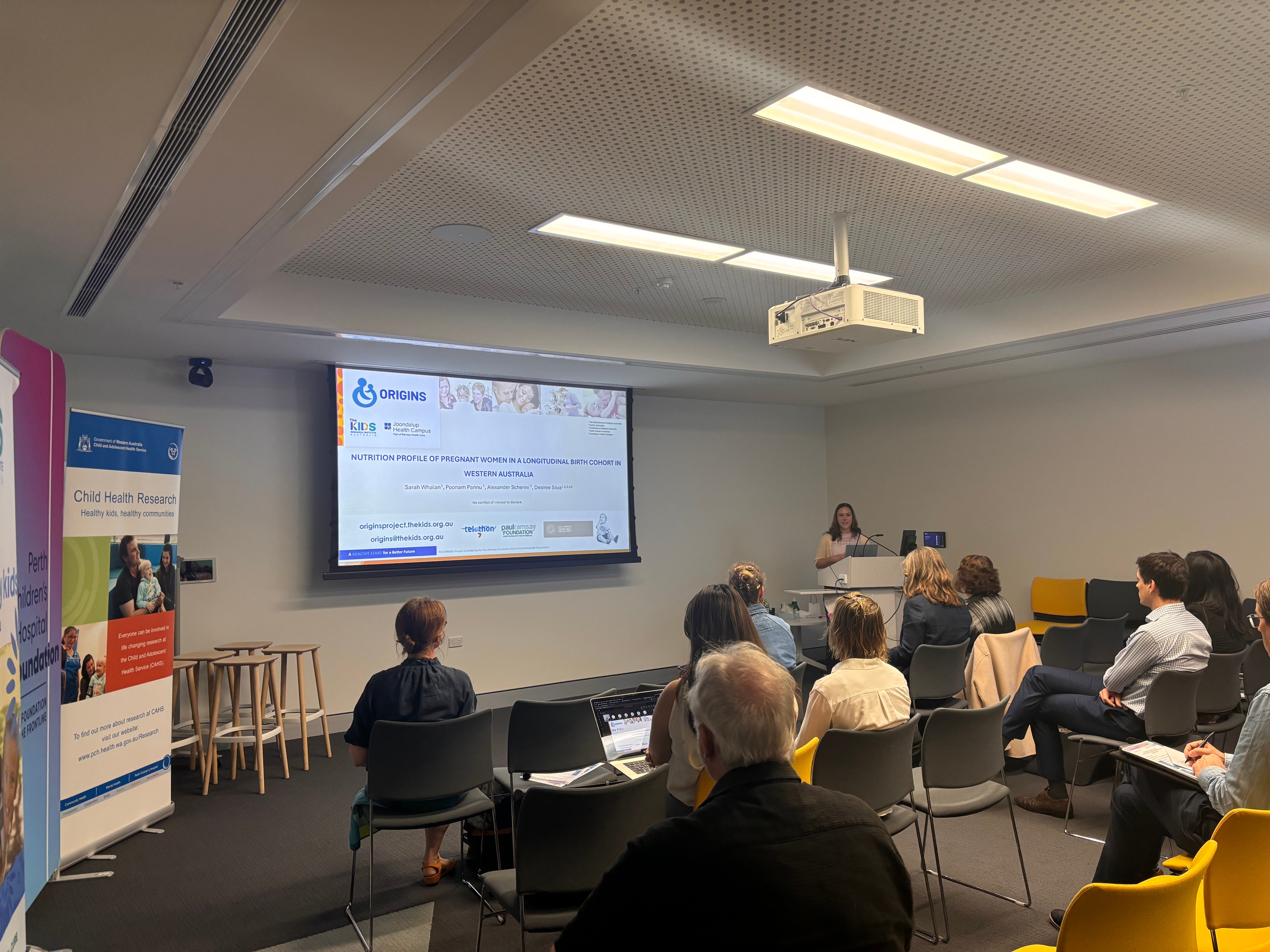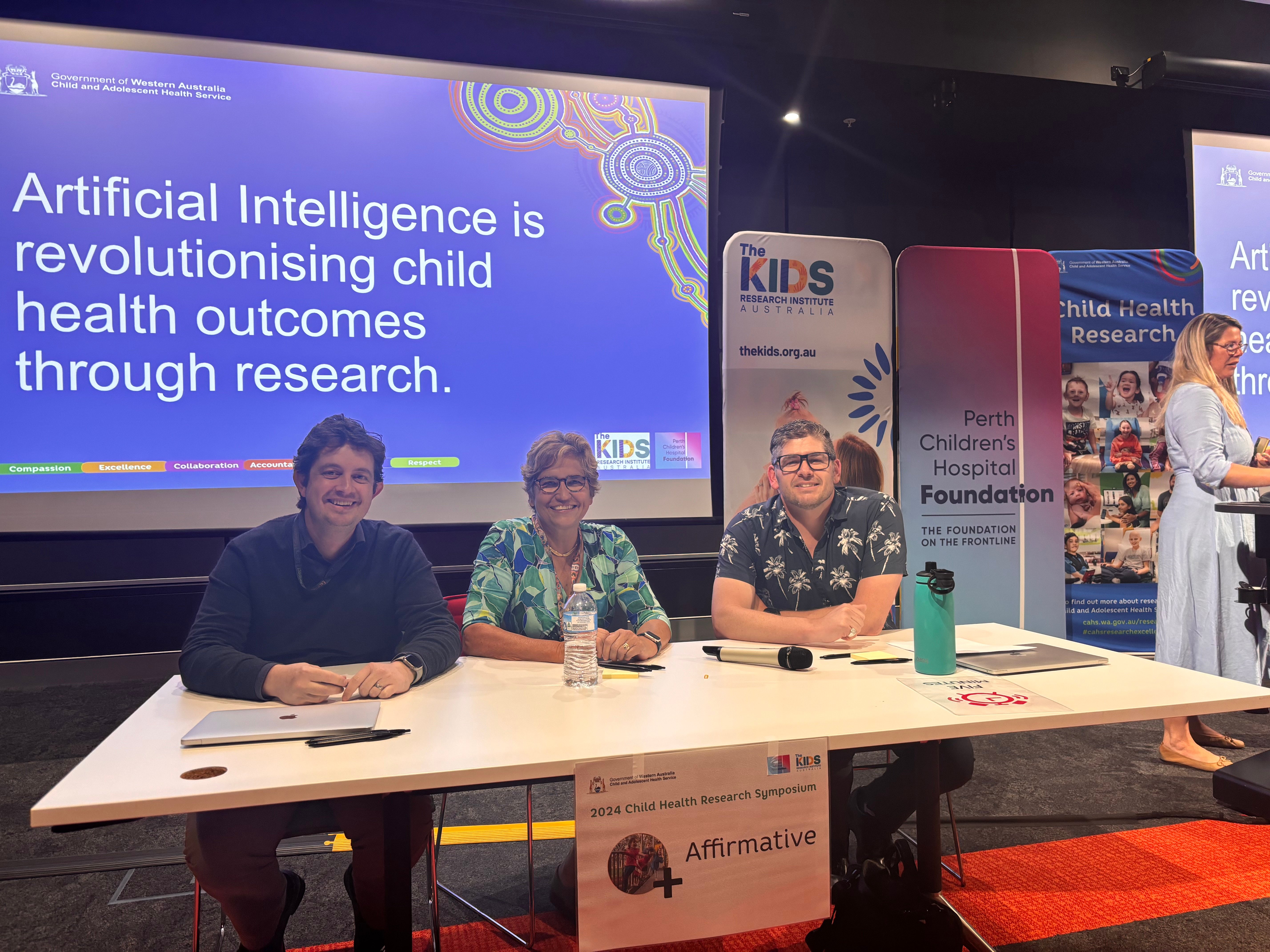The CAHS Symposium brings together Perth Children’s Hospital staff to explore cutting-edge research, innovative technologies, and the successes emerging from both ongoing projects and clinical trials.

ORIGINS Co-Director, Jackie Davis, with ORIGINS team members, Angeline Ho, Lainey York and Dr Poonam Pannu
This year’s theme, Empowering Futures: Advancing Child Health, reflected recent technological developments that are opening new frontiers for child health research.
This was synonymous with the presentations delivered by the ORIGINS team, which kicked off with ORIGINS Data Manager, Dr Sarah Whalan’s presentation, Nutrition Profile of Pregnant Women in a Longitudinal Birth Cohort in Western Australia.
The aim of this cross-sectional study was to describe the dietary intakes of pregnant women enrolled in the ORIGINS cohort and compare this to the Nutrient Reference Values (NRVs) and the Australian Recommended Food Score (ARFS).
Dr Whalan walked attendees through the study’s method, which included participants completing ORIGINS questionnaire data at multiple time-points from pregnancy until early childhood. These questionnaires collected information on factors such as nutrition, physical health, mental health, physical activity and the environment.

Dr Sarah Whalan during her presentation on the nutrition profile of pregnant women in a longitudinal birth cohort
The study found the macronutrient intakes of participants were met the requirements for protein intake, but not meeting the requirements for carbohydrates, and that fat was consumed in excess.
On a micronutrient level, participants fell below health recommendations for folate, calcium, iron and iodine, while sodium was consumed in excess.
Dr Whalan concluded her presentation that further investigation needs to take place as to why dietary guidelines during pregnancy are not adhered to, with more support required to assist pregnant women in achieving optimal dietary intake.
Later in the afternoon, Professor Silva presented in the affirmative team during the Great Debate, which argued whether artificial intelligence is revolutionising child health outcomes through research.

From left to right, Dr Rob Lethbridge, Professor Desiree Silva and Dr Matt Cooper
Points raised by Professor Silva and the affirmative team included AI’s ability to reduce wait times for specialist paediatric appointments by prioritising urgent cases, enabling virtual consultation, and optimising scheduling based on no-shows, seasonal trends, and cancellations.
Other arguments included AI-powered voice transcribing programs built specifically for doctors and health specialists, which convert clinic appointments into accurate patient notes. This saves valuable clinician time and ensures precise documentation, rather than relying on handwritten notes or memory.
Professor Desiree Silva debating for the affirmative team on whether AI is revolutionising child health outcomes in Australia
Though the Great Debate was lost to the negative team, the affirmative team enthusiastically argued their case for AI improving quality and efficiency of care for children, along with enhancing communication between providers which supports better health care outcomes for children.
It was a great afternoon showcasing the incredible well of knowledge within ORIGINS, and we look forward to presenting at next year’s symposium
